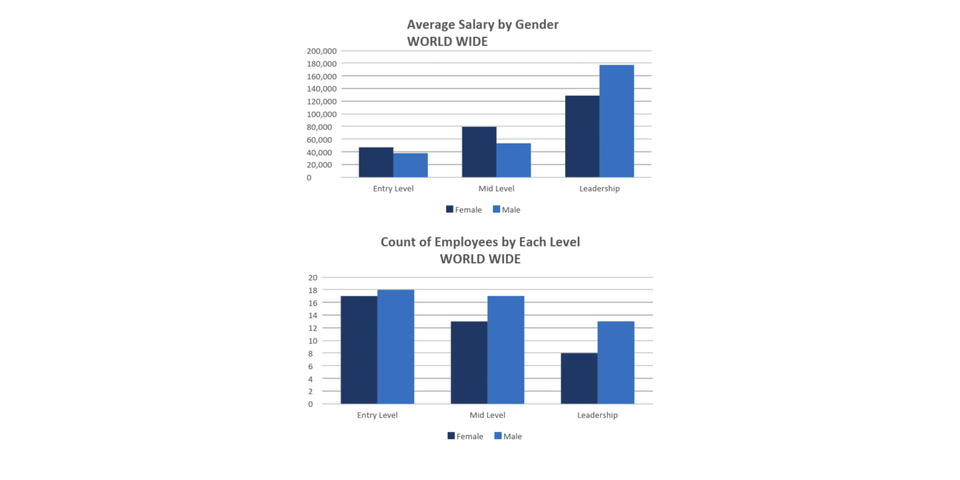One Earth Future (OEF) aims to find effective, sustainable solutions in all that we do, acknowledging that in order to achieve our goals we must be committed to enabling a culture of inclusivity, equity and equality throughout all of our global operations.
While we recognize we are not yet perfect or comprehensive in our efforts, we are continually taking steps to evolve. One Earth Future aims to recruit, hire, develop and retain the best and brightest from all segments of the world, in terms of gender, nationality, race, ethnicity, religion, sexual orientation, thinking style, and background. We seek to be culturally inclusive, ensuring all individuals feel valued, respected, and treated fairly, and by achieving these standards we believe we will become stronger and provide opportunities for everyone to excel in their chosen careers.
We prioritize diversity and inclusion, not only throughout our offices and staff teams but also within the programs we operate globally. We believe that in order to be successful as an organization and in achieving our mission, we must be relentlessly proactive in creating an enabling environment that fosters a feeling of belonging through inclusion, collaboration, and stakeholder-driven approaches to our work.
Commitments to Fostering Inclusion & Belonging
Diversity, Equity, and Inclusion (DEI)
Our Diversity, Equity, and Inclusion (DEI) committee, chaired by Secure Fisheries Director Dr. Sarah Glaser, is made up of teammates from various programs and walks of life, focused on developing specific, actionable steps forward that can be taken by OEF to include all perspectives and interests in decision making by the organization’s leadership. This includes decisions about OEF policies and practices, ensuring equitable treatment across all groups within our staff, and improving the diverse makeup of our staff. The group focuses its efforts around staff recruitment and retention of diverse staff, office culture, training, mentorship and peer partnering programs, commitment monitoring, and localization/internationalization: how our policies and practices land differently within various programs at OEF, and how lessons and practices from our different communities can be incorporated into our overall work.
Gender Equality, Race, Religion, Ethnicity & Nationality (GRREN)
The GRREN working group, chaired by Our Secure Future Director Sahana Dharmapuri, works together to share information and tools on intersectional analyses to ensure that OEF programs "do no harm" throughout the course of their work. The group’s focus is on gender analysis training, OEF Best Practices, resource creation and panel participation. The GRREN working group will work with OEF programs to ensure we “do no harm” by actively taking into account gender, race, religion, ethnicity, nationality, and other intersectional identities (including socioeconomic and class status). GRREN will strive to use a decolonizing lens and foster a commitment to universal equality throughout OEF programmatic work and strengthening organizational capacity on GRREN issues.
Women of Color Advancing Peace and Security (WCAPS)
OEF as an organization, as well as our programs Our Secure Future and Open Nuclear Network, signed the Standing Together Against Racism and Discrimination statement in 2020. WCAPS created OrgsinSolidarity as a partnership among more than 250 organizations and individuals to combat racist beliefs and acts of discrimination and integrate diversity within all levels of peace and security. All members remain committed to achieving a vision of advancing the leadership and professional development of women of color in the fields of international peace, security and conflict transformation.
Gender Champions in Nuclear Policy (GCNP)
Open Nuclear Network Program Director, Andreas Persbo, is a member of the Gender Champions in Nuclear Policy (GCNP). Gender Champions in Nuclear Policy is designed to augment and complement decades of accomplishment in building networks, skills, mentorship, visibility, voice, and community among women working in the nuclear policy field by adding commitment at the leadership level of the nuclear policy sector. Director Persbo is also an International Gender Champion of the IGC Vienna Group.
Commitments to Promoting Equity & Equality
Each of OEF's programs develops goals for their respective impact assessments in order to incorporate attention to women’s rights, diversity, and inclusion into their work. OEF recognizes that gender mainstreaming is a best practice. We are working to employ it across inter-governmental and non-governmental organizations that promote gender equality and support programmatic goals, from sustainable resource management to countering violent extremism.
- Each of OEF’s programs will develop diversity and inclusion goals for their respective impact assessments and will report progress on the website.
- OEF’s Impact, Learning, and Accountability team works with our programs to develop gender-sensitive impact indicators that we strive to achieve.
- We conduct quantitative and qualitative MLE (monitoring, learning, and evaluation) related to our peacebuilding and conflict resolution programs, of which gender is a consistently important component.
- OEF participates in stakeholder mapping and designs staffing interviews to ensure that new program directors and other key staff are hired from a diverse pool of candidates.
- OEF pays employees equally regardless of gender and will publish aggregate pay information on its website. Below is the most updated data as of March 2023.

- OEF employees invited to speak on a panel or participate in a conference will make efforts to encourage organizers to promote gender equality, diversity, equity, and inclusion practices. OEF employees strive to include voices and representation from the populations most affected by the topic.